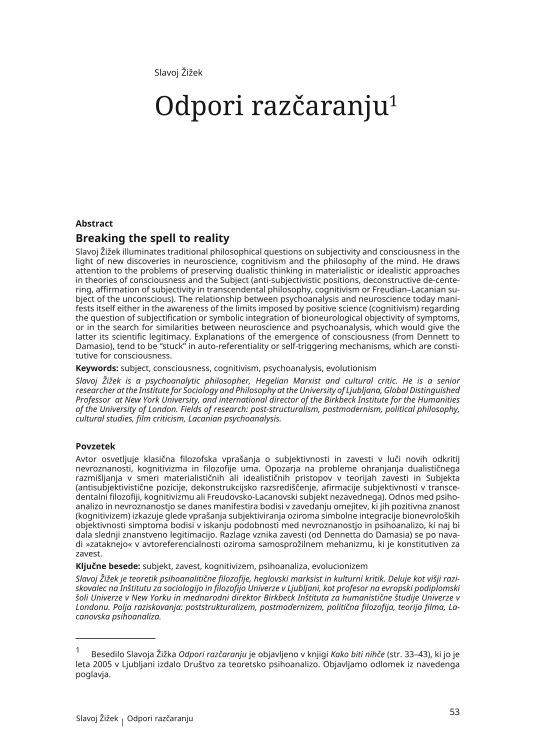Slavoj Žižek illuminates traditional philosophical questions on subjectivity and consciousness in the light of new discoveries in neuroscience, cognitivism and the philosophy of the mind. He draws attention to the problems of preserving dualistic thinking in materialistic or idealistic approaches in theories of consciousness and the Subject (anti-subjectivistic positions, deconstructive de-centering, affirmation of subjectivity in transcendental philosophy, cognitivism or Freudian–Lacanian subject of the unconscious). The relationship between psychoanalysis and neuroscience today manifests itself either in the awareness of the limits imposed by positive science (cognitivism) regarding the question of subjectification or symbolic integration of bioneurological objectivity of symptoms, or in the search for similarities between neuroscience and psychoanalysis, which would give the latter its scientific legitimacy. Explanations of the emergence of consciousness (from Dennett to Damasio), tend to be “stuck” in auto-referentiality or self-triggering mechanisms, which are constitutive for consciousness.




